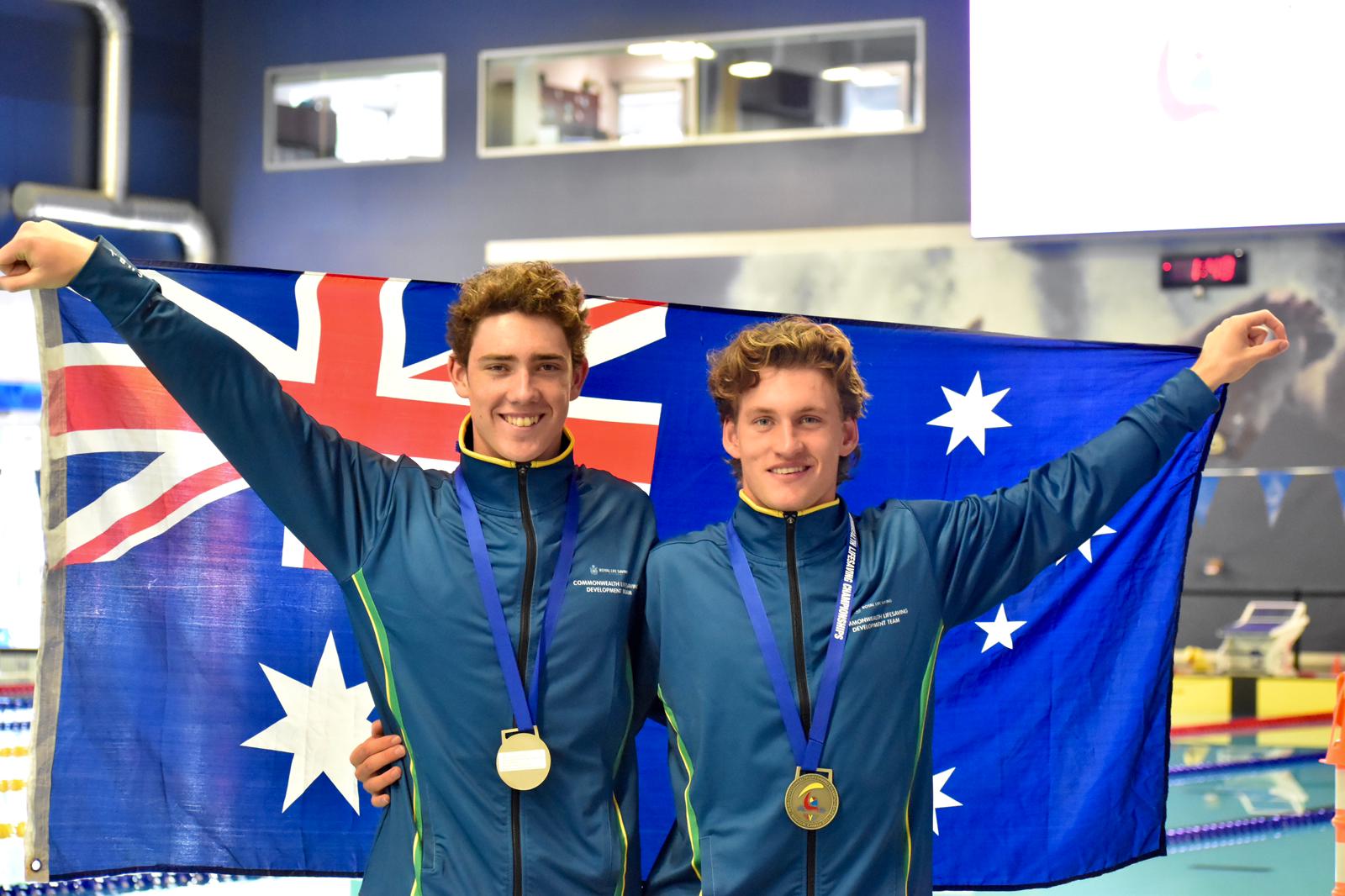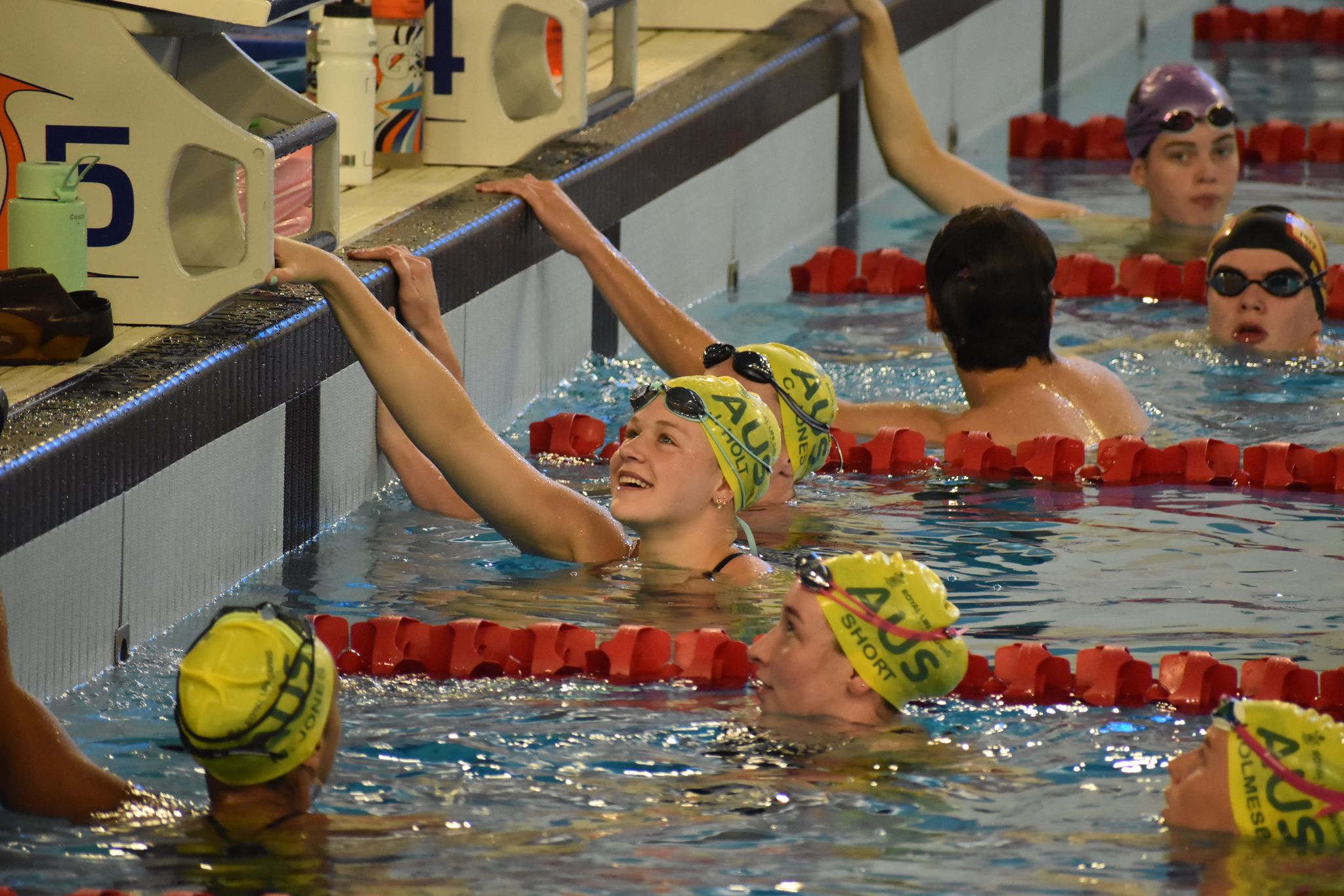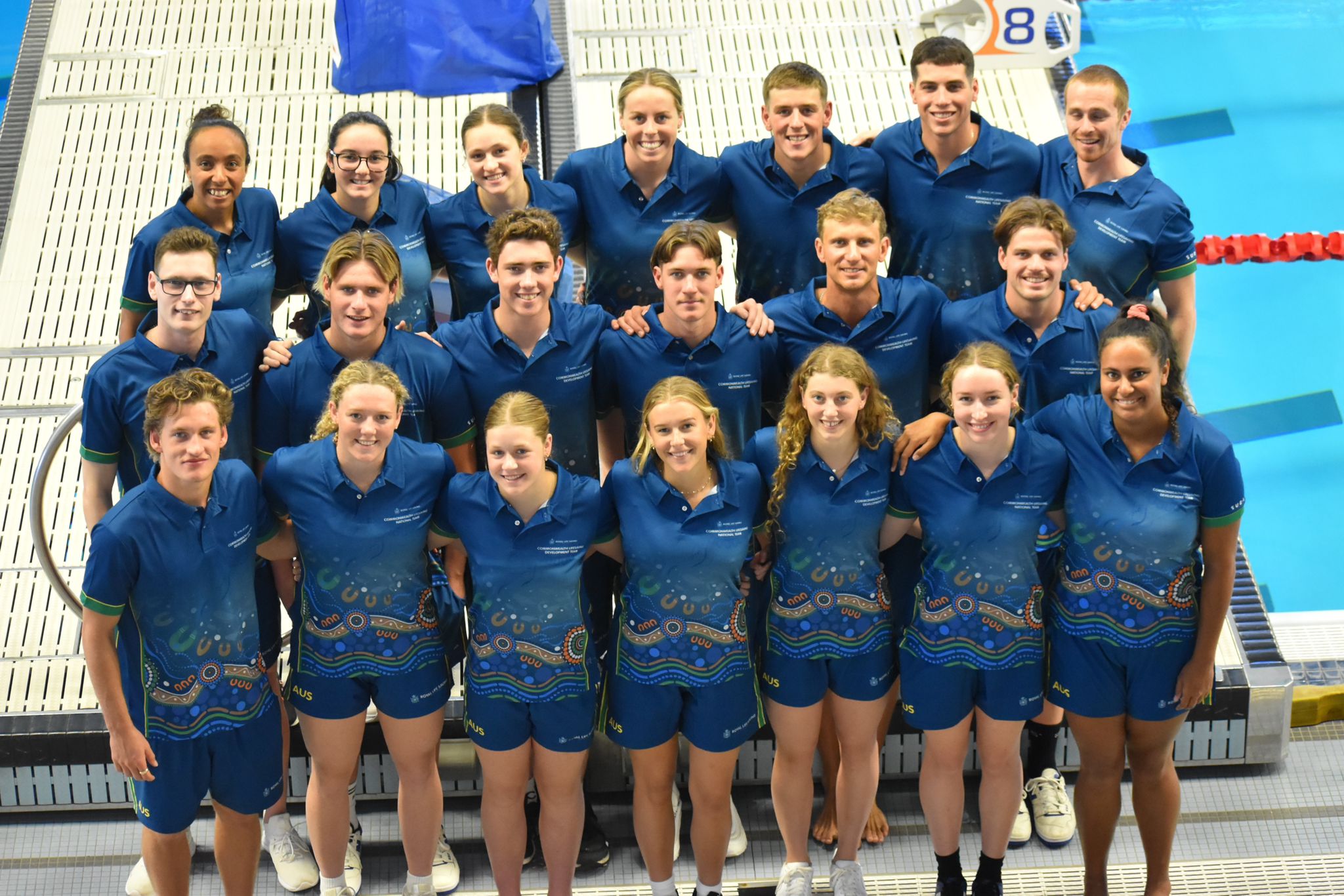Published 20 September 2023

Australia has claimed overall gold at the RLSS Commonwealth Pool Lifesaving Championships in Ontario, Canada with a dominant display which saw Australia beat teams from Canada, England, Wales, Scotland, Hong Kong, South Africa, India, Singapore, Northern Ireland and the Caribbean.
Both the National Team and the Development Team won gold in their divisions of the Championships, achieving the highest point score from individual, team and relay events across three days of intense competition where athletes had to swim both heats and finals.
By the end of the final day of competition, Australia had claimed 22 gold, 14 silver and seven bronze medals in the individual events; and 13 gold and two bronze medals in the relay team events.
On day three alone, four Championship records tumbled with Mariah Jones (Rescue Medley), Cameron Bladen (Rescue Medley), and both the women and men’s 4x50m Medley Relay teams shaving time off existing records. The men’s 4x50m Medley Relay team also broke the Commonwealth Record.
Australia also took out both the Men’s and Women’s Langford Bay Cup, which is awarded to the male and female athlete with the most points score for the overall meet. Callum Brennan took out the Men’s and Chelsea Jones just edged out teammate Mariah Jones to claim the Women’s.

Royal Life Saving Society – Australia National Manager – Lifesaving Development Brooke Cherfils was in Canada with the Australian National Team and the Development Team.
“It was wonderful to see the countless hours of training and preparation for every member of the team pay off at the Championships with such an outstanding result,” Ms Cherfils said.
“It is never easy to fly across the world, adjust to a new time zone, different foods and then get in the water and deliver both in terms of speed and technical skills, but the team has done exactly that.
“Beyond the individual excellence, these teams actively supported each other in and out of the water. That comradery helped drive their success.
“Pool lifesaving really is a special sport. The competitors aren’t just phenomenal athletes; they are also highly skilled at the very technical aspects of saving lives.
“While the elite competition is incredible to watch, some of the skills demonstrated in the Championships are skills we should all aim to have. Being able to save a life in an emergency is important whether you are an athlete, a professional lifeguard, or a bystander.”
The teams will now return to Australia to resume their training ahead of the Australian Pool Lifesaving Championships to be held in January 2024 in Melbourne.

